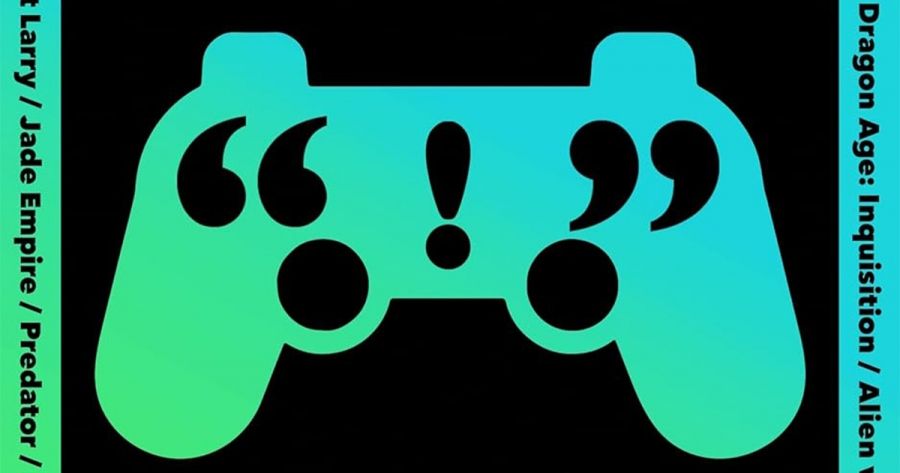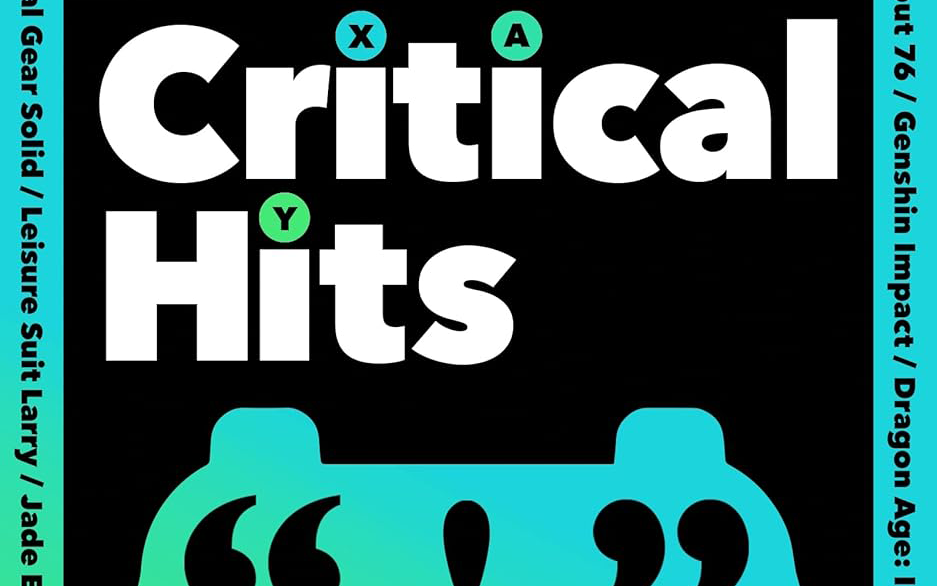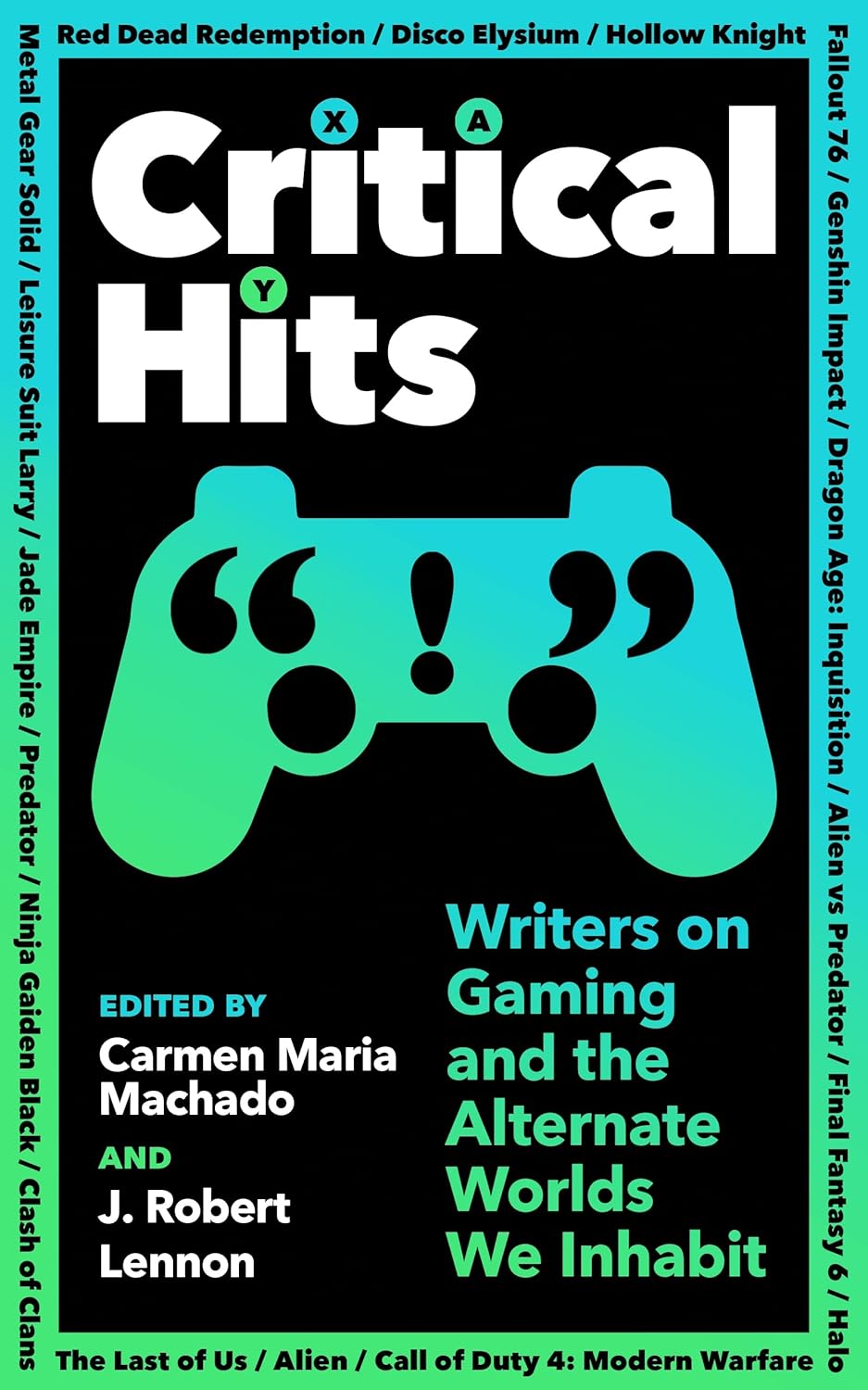
- Free Article: No
- Contents Category: Non-fiction
- Review Article: Yes
- Article Title: Trees as witnesses
- Article Subtitle: The pursuit of ancient trees
- Online Only: No
- Custom Highlight Text:
Those accustomed to dismissing video games as frivolities may be alarmed to discover that, on a global scale, gaming generates more revenue than the film, music and book industries combined, by an order of magnitude. Games have become the dominant cultural force. We have come a long way since Space Invaders. Despite this prevalence and influence, there is a paucity of writing on gaming. Notable exceptions are Gabrielle Zevin’s Tomorrow, and Tomorrow, and Tomorrow (2022) and Ernest Cline’s Ready Player One (2011), now joined by Carmen Maria Machado and J. Robert Lennon’s welcome collection of essays exploring the societal impact of the form.
- Featured Image (400px * 250px):

- Alt Tag (Featured Image): Chris Flynn reviews ‘Critical Hits: Writers on gaming and the alternate worlds we inhabit’ edited by Carmen Maria Machado and J. Robert Lennon
- Book 1 Title: Critical Hits
- Book 1 Subtitle: Writers on gaming and the alternate worlds we inhabit
- Book 1 Biblio: Serpent’s Tail, $34.99 pb, 248 pp
- Book 1 Cover Small (400 x 600):

- Book 1 Cover (800 x 1200):

To say the collection is a mixed bag is a given, but it is worth remembering that capturing the nuances of a highly visual interactive art form in print is a tall order. The chatty tone of several pieces suggests that their authors are more used to penning personal online think pieces that spark robust below-the-line discussion among rampant (and occasionally rabid) gamers. While that is arguably true of many contemporary essay collections, when robbed of its clickable hyperlink contextuality, writing on video games is short-changed by paper’s restrictions. YouTube links written out in full in the appendix serve no purpose other than to highlight this schism. As a physical artefact, the essays that work best in Critical Hits are those that preclude the need to have an open browser on hand or to have played any of the games mentioned therein.
There is an emotional investment and subsequent dissonance that occurs when narrative flow is influenced by the end user. Gaming is an experiential circumstance that goes beyond the act of reading a book, watching a film, or listening to an album. Players are active participants in how the story turns out. They become Alice down the rabbit hole, except that they are not bound by a creator’s vision. Game worlds are now so vast and complex it is possible for users to experience entirely different versions of a character’s narrative arc, to find and mould a simulacrum of themselves in a game’s protagonist. This has pros and cons.
In ‘Cathartic Warfare’, Afghani writer Jamil Jan Kochai walks the uneasy line of enjoying Call of Duty: Modern Warfare 2 while grinding to a halt within the game as he contemplates the fact that he is mowing down digital representations of himself. Disturbingly, he recalls witnessing US Army recruitment officers using the Xbox game as a tool to persuade his high-school friends to enlist and go to war for real. Elsewhere, Hanif Abdurraqib recounts his desolation at the death of Arthur Morgan, the cowboy protagonist in Red Dead Redemption 2. By following the narrative within the game, the player is forced, as Morgan, to collect a debt from a tuberculosis sufferer. Later, it is revealed that Morgan caught the disease, from which he slowly perishes as he rides across the beautifully rendered ultra-realistic landscape of the Old West, gathering berries and watching sunsets.
Morgan also has a cameo in Eleanor Henderson’s chapter ‘The Great Indoorsmen’. Worried that her son is spending too much time on his PlayStation rather than riding his bicycle around the neighbourhood like she did as a child, Henderson’s view on gaming shifts when she witnesses the boy sobbing as he puts out the bins. ‘Arthur Morgan died,’ he says when questioned. It is a pivotal moment for the concerned parent.
I see him engaging in curiosity, in a human literacy. On the screen, I see the sunlight on the blades of grass and I see the goosebumps on the hero’s arms. I see how attached Nico is to this world, how much he cares. And I see that video games may have the power to isolate young men in their bedrooms, but they also have the capacity to connect them to their most empathetic selves.
Do digital worlds now have more influence over imagination, education and emotional development than reality? Charlie Jane Anders explores the portal fantasy phenomenon in ‘Narnia Made of Pixels’. In her investigation of video-game movies (not those based on video games) such as David Cronenberg’s eXistenZ (1999) and Steven Lisberger’s TRON (1982), Anders examines the transportive, and sometimes transformative, effect of escaping into a fantastical realm where players can become their true selves, the person they always knew they really were. Anders writes with honesty on the core appeal of gaming, this notion of self-invention inside a safe and wondrous place.
Like most trans and queer people, I’ve known the feeling of being alienated from my own physicality, but I think it’s actually a common sensation among straight cis people as well. The world is constantly putting expectations on us and requiring us to perform actions that aren’t our own, so it’s easy to feel kind of lost in our own flesh.
In many current games, in-world avatars are highly customisable, granting players the ability to explore gender diversity and identity in a fresh and often fun manner. Critical Hits embraces this brave new simulation, with its wide range of essayists diverging from expectations by writing about survivor’s guilt (Elissa Washuta on The Last of Us), sexual awakening (Octavia Bright on Leisure Suit Larry), white supremacy (Vanessa Villarreal on Assassin’s Creed: Valhalla), and childhood memories (Stephen Sexton on Metal Gear Solid). As Sexton reminds us, video games are, for billions of people, representative of the home, be it real or digitally enhanced. They are potent cultural signifiers that have progressed dynamically from blasting aliens and hopping between mushrooms. They exist at the frontier of narrative imagination, pushing boundaries and enabling even the loneliest non-pixelated biological entity to find meaning, support, and friendship. Ignore them at your peril.


Comments powered by CComment